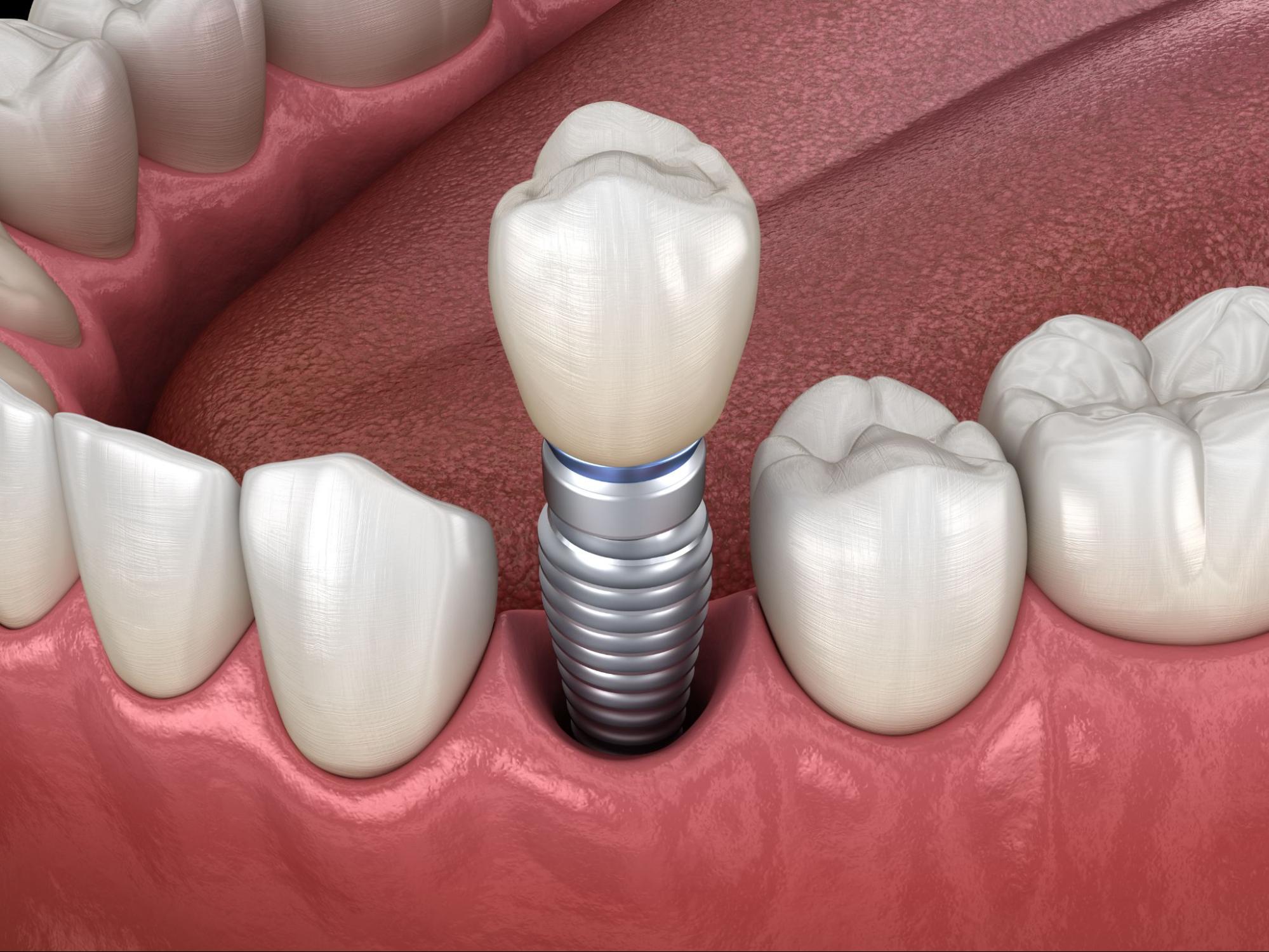The Ultimate Guide to Dental Implants Process and Timelines

Your teeth are one of the strongest substances in your body, being even harder than the bone. But factors such as disease, tooth decay, wear, and dental trauma can lead to tooth loss. And once permanent teeth are gone, natural regrowth is impossible. Fortunately, modern dentistry offers various procedures for tooth replacement. If you’re looking for treatments for missing teeth to restore your smile and improve oral health, dental implants can be an ideal solution. This comprehensive guide will equip you with essential information on the dental implant process, timelines, as well as the pros and cons to help you make an informed decision.
What are Dental Implants?
Dental implants are an excellent solution to replace one or more missing teeth. The procedure involves placing titanium tooth screws in the jawbone, providing a stable and secure foundation for your new prosthetic teeth.
Dental implants are generally recommended for missing or damaged teeth that cannot be treated or saved. For example, missing teeth because of periodontal disease, extensive decay or teeth broken beyond repair.
Dental Implant Surgery Step-by-Step
A dental implant is an entire tooth replacement and is performed in multiple steps. It begins with an initial consultation to determine your eligibility for the procedure. This generally involves taking X-rays, dental impressions, and discussing your medical history, as well as explaining the procedure and the aftercare involved. Once it is determined that dental implants are a viable option for you, a treatment plan will be created. This plan includes the number of implants needed, the placement location, and any additional procedures, such as a bone graft for patients with low bone volume.
The dental implant procedure involves the following steps:
Tooth Removal
The first step is to remove the damaged or remaining tooth if any. If there is any infection, it’s treated first to ensure your mouth is healthy, and there are no dental problems. In some instances, a bone graft may be needed to support the dental implant. It involves placing a piece of bone in the implant area to preserve and add to the bone density around the implant area. After the bone graft, it takes around two months for the bone to augment with the existing structure and the wound to heal. Generally, even if you don’t need a bone graft, after the tooth extraction, the wound is given some time to heal before dental implant placement.
Dental Implant Placement
The next step involves the placement of the implants in the jawbone. This is usually performed under local anaesthesia, but sedation or general anaesthesia may be used for more complex cases or patients with dental anxiety. An incision in the gum tissue to expose the underlying jawbone and the screw-shaped implants are carefully inserted.
After implant placement, a process called osseointegration takes place. This is when the implants fuse with the jawbone for several months, providing a strong base for the artificial teeth. Following the implant process, the healing and the bone integration must be given some time, typically around 2 months or more before the final stage.
Crown Placement
Once the implant is integrated, healed and solid, the crown can be attached to the implant. Your teeth impressions are taken, and a custom crown is made and placed over the implant, giving you a natural-looking, fixed tooth replacement.
Regular follow-up appointments are vital to monitor the healing process and ensure the implants are functioning properly. Good oral hygiene practices, including brushing, flossing, and regular dental check-ups, are essential to maintain the health of your dental implants.
Pros and Cons of Dental Implants
Some of the pros and cons of dental implants include:
Pros
- Dental implants closely resemble natural teeth and are designed to blend seamlessly with the surrounding teeth, improving the smile’s appearance.
- Dental implants function like natural teeth, allowing you to bite, chew, and speak with ease.
- Dental implants are durable and can last for years, even a lifetime, with proper care and maintenance.
- When a tooth is lost, the underlying jawbone can deteriorate over time. Dental implants help to prevent bone loss and maintain the integrity of the facial structure.
- Dental implants do not require alterations or support from adjacent teeth, unlike dental bridges. This means that neighbouring natural teeth are not compromised or weakened during or after the process.
- Dental implants help prevent the shifting and movement of the remaining teeth by filling the gaps left by missing teeth.
Cons
- While dental implants are not susceptible to decay like natural teeth, they require a high level of care and maintenance. This means commitment and dedication to maintaining oral hygiene with brushing, effective cleaning between the teeth with interdental brushes and flossing, and regular checkups for preventive care and professional cleaning.
- Dental implants are a surgical procedure and pose some inherent risks and potential complications. These can include infection, damage to surrounding structures, nerve injury, or sinus problems in the upper jaw.
- Dental implant treatment requires multiple appointments and several months to complete. This includes time for the healing and integration of the implant with the jawbone before the final restoration can be placed. The process may be longer for individuals requiring additional treatments like bone grafting.
- Dental implants are more expensive than other tooth replacement options, such as dentures or dental bridges.
- Dental implants may not be suitable for patients with certain medical conditions or inadequate jawbone structure.
Are Dental Implants a Good Option for You?
Dental implants are a fantastic option for missing teeth. They look and feel like your natural teeth, enhancing functionality and appearance. Implants are also fixed and non-removable, making them more convenient than dentures or other teeth replacement options. But what is not commonly known is that dental implants are high maintenance. This is because they are not as robust as your natural teeth and need an optimal environment to stay in shape. While natural teeth can handle a lot more problems because they are still alive and can adapt, dental implants need optimal hygiene as they are more prone to gum infections.
At Whitehorse Dental, a dental implant is usually the last treatment we do for our patients. Before that, we ensure the rest of the mouth is healthy and there is no infection or other oral issues. If the underlying reason behind the missing teeth is not identified and treated first, there’s no point in inserting an implant because this raises the chances of implant failure.
It is important to understand that there is no substitute for your natural teeth. They are built to withstand most oral problems and with preventive care, proper oral hygiene practices and a healthy lifestyle, you can maintain your teeth for life. Whereas, dental implants need an ideal environment to sustain. If you lost your teeth because of gum disease or an infection, and the bone has an infection around it, then you can’t get an implant until it’s treated. Gum infections in implants progress 5 to 7 times faster than those around natural teeth. As such, it’s essential to be prepared to maintain your smile investment before committing to a dental implant procedure.
If you’re missing one or more teeth, have adequate bone volume and healthy gums and are committed to taking care of your implants, then dental implants are an ideal solution for you. They will help restore your smile, and improve function and oral health for the long term.
Regain Your Smile with Dental Implants
At Whitehorse Dental, we take a transparent and honest approach to dental care. With honest and evidence-based recommendations, we take the time to understand your dental requirements, aligning them with your lifestyle and health for lasting results. We strive to ensure that the treatment you get, whether it’s a dental implant, crown or teeth whitening, is sustainable for you to maintain both in terms of your oral health and aesthetics. If you’re exploring teeth replacement treatments such as dental implants, book a consultation with our Blackburn dentists for more information.

